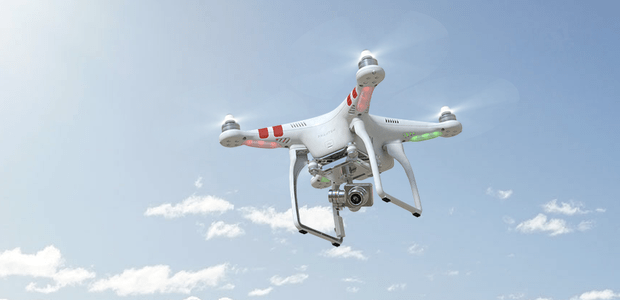advertisement
Kenya Government to approve use of commercial drones
Kenya has finally approved regulations for drones, becoming the second country after Rwanda in the region to embrace commercial use…

Kenya has finally approved regulations for drones, becoming the second country after Rwanda in the region to embrace commercial use of Aerial Unmanned Vehicles (AUVs).
The use of unmanned aerial vehicles for anyone outside of the military had been banned in Kenya for the past two years due to lack of a legal framework.
The approval also comes at a time when regulators elsewhere in Africa have tightened restrictions on UAVs. In Ghana, for instance, flying an unregistered drone is punishable by up to 30 years in jail. Equally, in Nigeria, operators require permits from the aviation authority as well as the office of the National Security Adviser. The process of getting a permit costs up to $4,000.
advertisement
Elsewhere on the continent, drones are being deployed for HIV tests in rural areas of Malawi and commercial deliveries in Rwanda.
According to Business Daily, KCAA Director General Mr Gilbert Kibe said the gazette legal notice together with an Aeronautical Information Circular will be published as soon as official notification from the meeting is received.
“The policy procedures and regulations for remotely piloted aircraft systems, better known as the drones, have been approved,” said Mr Kibe.
He said after gazetting, drones operations will be allowed in Kenya.
advertisement
Hundreds of drones imported before the approval of the regulations have been confiscated by the Kenya Revenue Authority, according to KCAA.
Astral Aviation, a Kenyan-based logistics firm, already has plans in place to open a drone airport at Kapese Airstrip in Lokichar as it moves to tap proceeds from oil exploration in the region.
The firm said the facility, the first in Africa, will be ready by February, 2018.
advertisement
The firm has opened a subsidiary — Astral Aerial Solution — that will mainly deal with the operations of the drones, not only in Kenya but also in Rwanda where the rule for operating the machines have been approved.
The firm’s chief executive officer Sanjeev Gadhia, said the firm intends to use drones in moving oil and gas equipment from the central logistics hub to the fields.
“We are going to open the Drone Airport in Kapese as we target to offer logistics solutions to oil drilling firms in Lokichar and we are happy that the approval on regulations have been made,” said Mr Gadhia.
The Fly Ox drone, which is one of the devices that the firm intends to buy, can carry up to two tonnes of cargo and can travel for 1,200 kilometres, making it ideal for the oil and gas operations, given that the fields are far apart.
The firm will also buy drones for security surveillance and create a virtual highway between Kapese and Eldoret to monitor the movement of crude oil loaded onto trucks.
Mr Gadhia said the firm has set aside Sh50 million ($500,000) to start drone operations as early as this year.
At least 1,000 applicants are seeking regulatory approvals to operate drone-based transport services in Kenya, reflecting the high demand for the robotic aircraft. Firms want to use the UAVs for film shooting, relief services and other commercial purposes, according to the regulator.
Among other things, the proposed regulations require commercial drone owners to have security clearances from the Ministry of Defence and have trained pilots.
Civilians are limited to flying drones at a height of not more than 400 feet. Failure to follow the rules will attract a maximum of Sh500,000 in fines or a jail term of not more than three months, the proposed regulations state.
The approvals were made by the committee chaired by President Uhuru Kenyatta and comprising all security agencies including the Kenya Defence Forces and Kenya Police Service, who form the National Advisory Committee.